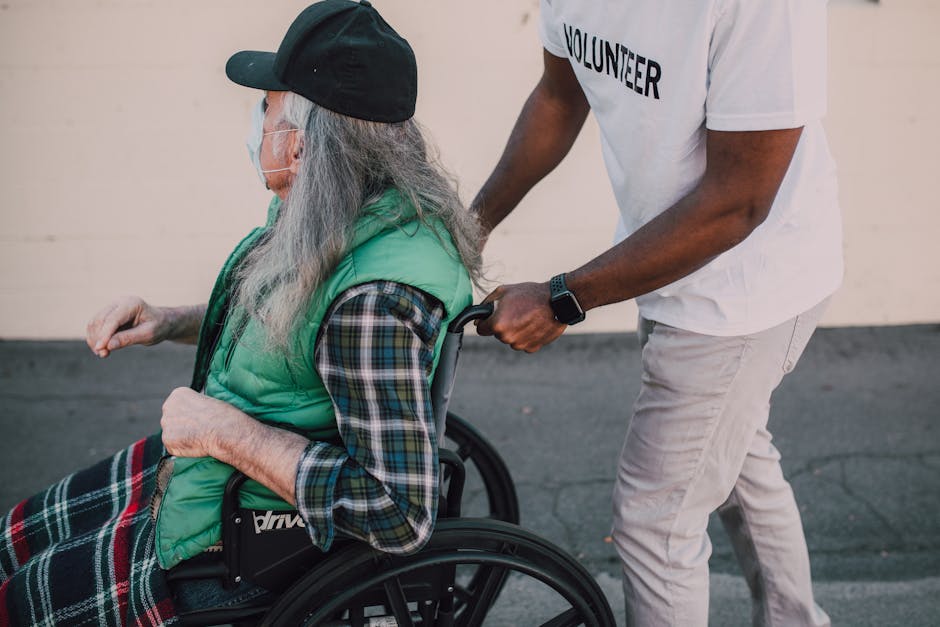Navigating Senior Care Options
Choosing the right senior care option is a significant decision for individuals and families alike. With a variety of choices available, understanding the distinctions between them is essential to ensuring both the quality of life and proper support for older adults. Senior care encompasses a broad spectrum, from in-home assistance to specialized facilities, each catering to unique needs and circumstances.

Financial considerations, health requirements, and personal preferences all play a role in determining the most suitable path. With an aging population and advancements in healthcare, many new models of care have emerged. By exploring these options carefully, families can feel more confident about their decisions while prioritizing the well-being of their loved ones.
Types of Senior Care Options
The range of senior care services spans multiple categories, each designed to address different levels of need:
- In-Home Care: This option supports seniors who prefer to stay in their homes but require assistance with daily tasks like cooking, cleaning, or medication management.
- Assisted Living: These facilities provide housing, meals, and support for seniors who do not need intensive medical care but benefit from community and structured activities.
- Nursing Homes: For those requiring round-the-clock medical supervision or rehabilitation services, nursing homes offer comprehensive care.
- Memory Care Units: Designed specifically for individuals with dementia or Alzheimer's disease, these units feature trained staff and secure environments.
- Adult Day Care Centers: These centers provide daytime programs that include social interaction and health monitoring for seniors while offering respite to caregivers.
Factors to Consider When Choosing Senior Care
Several factors should guide your decision-making process. Start by assessing the senior's current health status and anticipated future needs. For instance, someone with progressive memory loss may require a facility equipped to handle worsening conditions over time. Financial planning is also critical, compare costs across different care options to determine what is sustainable long-term.
Location is another key factor. Proximity to family members ensures regular visits and emotional support. Additionally, consider the quality of services provided. Research ratings and reviews from credible sources like Medicare's Nursing Home Compare tool (medicare.gov) or state licensing boards.
The Role of Caregivers
Family caregivers often play an integral role in the senior care journey. Caregiving responsibilities can be overwhelming without proper support. Respite care services offer temporary relief by providing professional assistance while family members recharge. Joining caregiver support groups can also provide emotional encouragement and practical advice for managing challenges.
Technological Innovations in Senior Care
Technology has transformed senior care accessibility and efficiency. Remote monitoring systems now allow families to track vital signs or detect falls through wearable devices. Platforms like Care.com (care.com) connect families with qualified caregivers, simplifying the search process. Even telehealth services have grown significantly, enabling seniors to consult doctors from home, an invaluable resource for those with mobility issues or in rural areas.
How to Evaluate Senior Care Facilities
When visiting facilities, pay attention to cleanliness, staff interactions with residents, and overall atmosphere. Ask about staff-to-resident ratios and inquire whether personalized care plans are available. Engage with residents if possible, they can offer candid insights into daily life within the facility.
Legal considerations are equally important. Review contracts thoroughly before signing, ensuring that terms align with expectations regarding fees, services provided, and policies for handling grievances or changes in health status.
The decision-making process surrounding senior care options requires careful thought and preparation. By weighing different types of care, assessing individual needs, and leveraging available resources like technology or professional advice, families can find solutions that prioritize comfort and dignity for their loved ones.
Holistic Approaches to Senior Care
In recent years, there has been growing recognition of the importance of a holistic approach to senior care. Beyond addressing physical health and basic needs, a well-rounded care plan incorporates emotional, social, and mental well-being to ensure a fulfilling quality of life for older adults. Holistic senior care acknowledges that aging is not merely a medical condition but a complex life stage that requires attention to multiple dimensions of health and happiness.
One vital aspect of holistic care is fostering emotional support. Seniors often face feelings of isolation, grief, or anxiety as they adapt to changes in their health or living arrangements. Incorporating counseling services, regular family interactions, or even pet therapy can significantly improve their emotional outlook. Many senior care facilities now offer structured programs focused on emotional wellness, such as mindfulness sessions, meditation classes, or support groups.
Social engagement also plays an essential role in holistic care. Loneliness has been linked to adverse health outcomes such as depression, cognitive decline, and even cardiovascular issues. Ensuring that seniors have access to social activities (whether it’s joining a book club, participating in community events, or simply enjoying mealtime conversations with peers) can have transformative effects on their mental and physical health. For those receiving in-home care, enrolling in virtual communities or group video calls may provide the needed connection with others.
Another critical element of holistic senior care is cognitive stimulation. Activities like puzzles, art classes, music therapy, and lifelong learning programs encourage mental agility and foster creativity among seniors. Facilities offering memory care services frequently integrate these activities into their daily schedules as part of cognitive rehabilitation programs for individuals with dementia or Alzheimer's disease.
Physical fitness is equally important in a comprehensive care plan. Gentle exercises tailored for older adults, such as yoga, tai chi, or water aerobics, not only enhance mobility but also boost mood and self-confidence. Many senior care providers are increasingly incorporating wellness programs into their offerings, providing access to personal trainers or group fitness sessions designed specifically for aging bodies.
A key benefit of holistic approaches is the customization they offer. Care plans can be tailored based on individual preferences and needs, ensuring that seniors are active participants in shaping their daily routines. By addressing physical health alongside emotional and social factors, holistic senior care promotes dignity and enables older adults to thrive during their later years.
